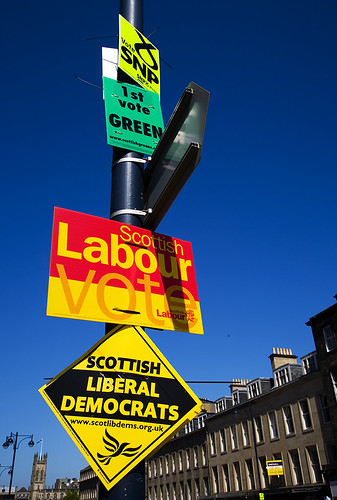I'd forgotten about this: a drinking song from my youth. Do young lefties still sing?
Actually, do they still
drink?
N.B. Honest - I never sang the dodgy
13th verse...even then I thought that level of sectarianism was naff.
I'll sing you one - O!
Red Fly The Banners, O!
What is your one - O!
One is Workers' Unity and ever more shall be so.I'll sing you two - O!
Red Fly The Banners, O!
What are your two - O!
Two, two, the workers' hands, working for a living - O!One is Workers' Unity and ever more shall be so.
I'll sing you three - O!
Red Fly The Banners, O!
What are your three - O!
Three, three the Rights of ManTwo, two, the workers' hands, working for a living - O!
One is Workers' Unity and ever more shall be so.
I'll sing you four -O!
Red Fly The Banners, O!
What are your four - O!
Four for the Four Great heroes ( Shout Marx, Engels, Lenin, Stalin - or Gramsci- to taste)Three, three the Rights of Man
Two, two, the workers' hands, working for a living - O!
One is Workers' Unity and ever more shall be so.
I'll sing you five -O!
Red Fly The Banners, O!
What are your five - O!
Five for the years in the five year
planAnd four for the four years taken,
Three, three, the Rights of Man!
Two, two the workers' hands, working for a living, O!
One is Workers' Unity and ever more shall be so.
I'll sing you six -O!
Red Fly The Banners, O!
What are your six - O!
Six for the Tolpuddle Martyrs,Five for the years in the five year plan
And four for the four years taken,
Three, three, the Rights of Man!
Two, two the workers' hands, working for a living, O!
One is Workers' Unity and ever more shall be so.
I'll sing you seven -O!
Red Fly The Banners, O!
What are your seven - O!
Seven for the hours of the working daySix for the
Tolpuddle Martyrs,
Five for the years in the five year plans
And four for the four years taken,
Three, three, the Rights of Man!
Two, two the workers' hands, working for a living, O!
One is Workers' Unity and ever more shall be so.
I'll sing you eight -O!
Red Fly The Banners, O!
What are your eight - O!
Eight for the Eighth Red ArmySeven for the hours of the working day
Six for the
Tolpuddle Martyrs,
Five for the years in in the five year plans
And four for the four years taken,
Three, three, the Rights of Man!
Two, two the workers' hands, working for a living, O!
One is Workers' Unity and ever more shall be so.
I'll sing you nine -O!
Red Fly The Banners, O!
What are your nine - O!
Nine for the Days of the General StrikeEight for the Eighth Red Army
Seven for the the hours of the working day
Six for the
Tolpuddle Martyrs,
Five for the years in in the five year plans
And four for the four years taken,
Three, three, the Rights of Man!
Two, two the workers' hands, working for a living, O!
One is Workers' Unity and ever more shall be so.
I'll sing you ten -O!
Red Fly The Banners, O!
What are your ten - O!
Ten for the Days that Shook the WorldAnd Nine for the Days of the General Strike
Eight for the for the Eighth Red Army
Seven for the the hours of the working day
Six for the
Tolpuddle Martyrs,
Five for the years in in the five year plans
And four for the four years taken,
Three, three, the Rights of Man!
Two, two the workers' hands, working for a living, O!
One is Workers' Unity and ever more shall be so.
I'll sing you eleven -O!
Red Fly The Banners, O!
What are your eleven - O!
Eleven for the Moscow DynamosTen for the Days that Shook the World
And Nine for the Days of the General Strike
Eight for the for the Eighth Red Army
Seven for the the hours of the working day
Six for the
Tolpuddle Martyrs,
Five for the years in in the five year plans
And four for the four years taken,
Three, three, the Rights of Man!
Two, two the workers' hands, working for a living, O!
One is Workers' Unity and ever more shall be so.
I'll sing you twelve -O!
Red Fly The Banners, O!
What are your twelve - O!
Twelve for the chimes on the Kremlin clockAnd eleven for the Moscow Dynamos
Ten for the Days that Shook the World
And Nine for the Days of the General Strike
Eight for the for the Eighth Red Army
Seven for the the hours of the working day
Six for the
Tolpuddle Martyrs,
Five for the years in in the five year plans
And four for the four years taken,
Three, three, the Rights of Man!
Two, two the workers' hands, working for a living, O!
One is Workers' Unity and ever more shall be so.
 A lot of this post flies above my head, but what I think he's telling us is that the banks are on a 'heads-I-win-tails-you-lose' deal. If there are large scale collapses of other enterprises they have insurance deals called synthetic collateralised debt obligations (synthetic CDOs) that basically mean they get sheds loads of money and the rest of the economy suffers. So no more 'credit crunch', just a unthinkably big transfer of wealth to the financial sector from the rest of the global economy.
A lot of this post flies above my head, but what I think he's telling us is that the banks are on a 'heads-I-win-tails-you-lose' deal. If there are large scale collapses of other enterprises they have insurance deals called synthetic collateralised debt obligations (synthetic CDOs) that basically mean they get sheds loads of money and the rest of the economy suffers. So no more 'credit crunch', just a unthinkably big transfer of wealth to the financial sector from the rest of the global economy.




































